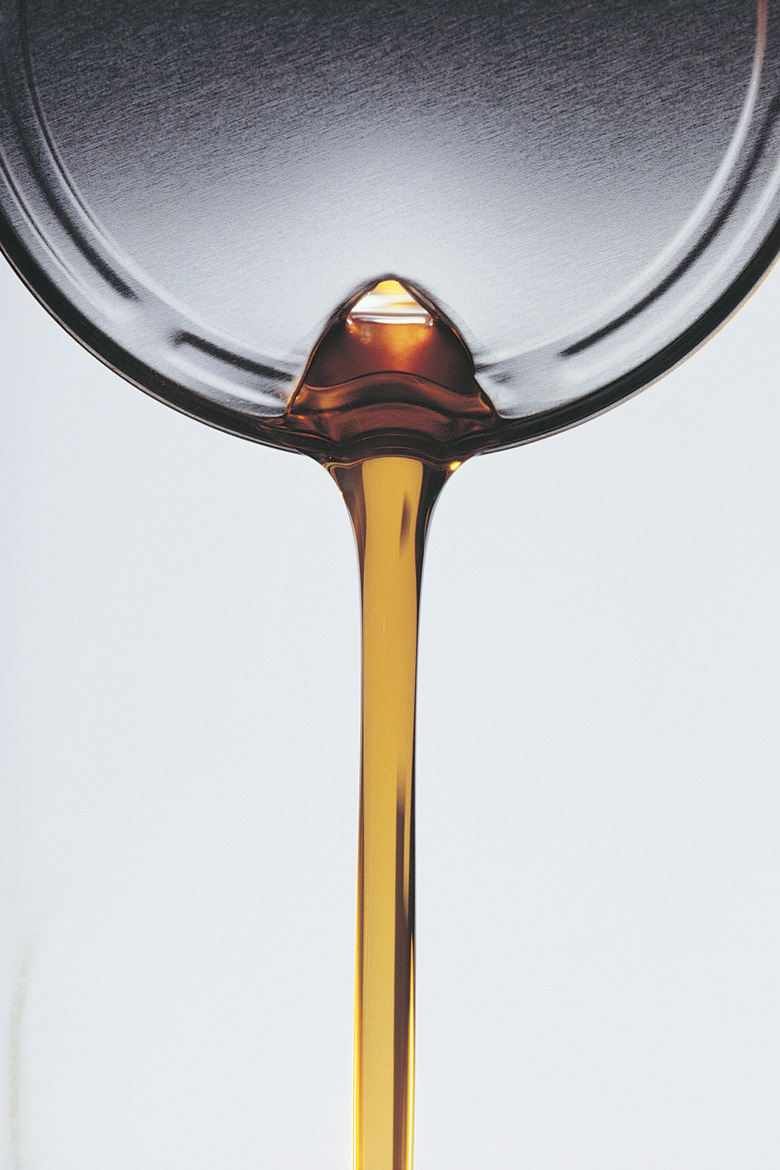What Determines The Viscosity Of A Fluid?
The viscosity of a fluid refers to how easily it moves under stress. A highly viscous fluid will move less readily than a fluid of low viscosity. The term fluid refers to liquids and gases both of which have viscosity. The accurate prediction and measurement of the behavior of a fluid in motion is essential in the design of efficient industrial plants and apparatus.
Technical Definition
Technical Definition
A fluid in motion adheres to the surface of the vessel through which it is flowing. This means that the velocity of a fluid must be zero at the wall of the pipe or container. The velocity of the fluid increases away from the vessel surface, so a fluid actually moves through a vessel in layers. The deformation of this fluid is called a shear: A fluid is sheared when it passes over a solid surface. Resistance to this shearing from within the fluid is called viscosity.
Cause of Viscosity
Cause of Viscosity
Viscosity is caused by friction within a fluid. It is the result of intermolecular forces between particles within a fluid. These intermolecular forces resist the shearing motion of the fluid and the viscosity of a fluid is directly proportional to the strength of these forces.As a liquid is more ordered than a gas, it follows that the viscosity of any liquid must be considerably higher than the viscosity of any gas.
Coefficient of Viscosity
Coefficient of Viscosity
Every fluid has its own specific viscosity and the measure of this is called the Coefficient of Viscosity, denoted by the Greek letter mu. The coefficient is directly proportional to the amount of stress required to shear a fluid. A viscous fluid requires a lot of stress or pressure to move; this stands to reason, as a thick fluid deforms less readily a thin fluid. The difference in velocity of a fluid between the contact edge (where it is zero) and the center is another measure of the viscosity. This velocity gradient is small for viscous fluids, meaning the velocity is not that much greater in the center than towards its edge.
Heat Affects Viscosity
Heat Affects Viscosity
As viscosity is due to intermolecular interaction, so this property is affected by heat, given that heat is the result of the kinetic energy of molecules in a fluid. However, heat has a very different effect on liquids and gases. Heating a liquid results in greater separation of its molecules meaning that the forces between these are weakened. Consequently the viscosity of a liquid decreases when it is heated. Heating a gas causes the reverse. More rapidly moving gas molecules will collide with each other more often, leading to an increase in viscosity.
References
Cite This Article
MLA
Beglan, Richard. "What Determines The Viscosity Of A Fluid?" sciencing.com, https://www.sciencing.com/determines-viscosity-fluid-8702394/. 24 April 2017.
APA
Beglan, Richard. (2017, April 24). What Determines The Viscosity Of A Fluid?. sciencing.com. Retrieved from https://www.sciencing.com/determines-viscosity-fluid-8702394/
Chicago
Beglan, Richard. What Determines The Viscosity Of A Fluid? last modified March 24, 2022. https://www.sciencing.com/determines-viscosity-fluid-8702394/
